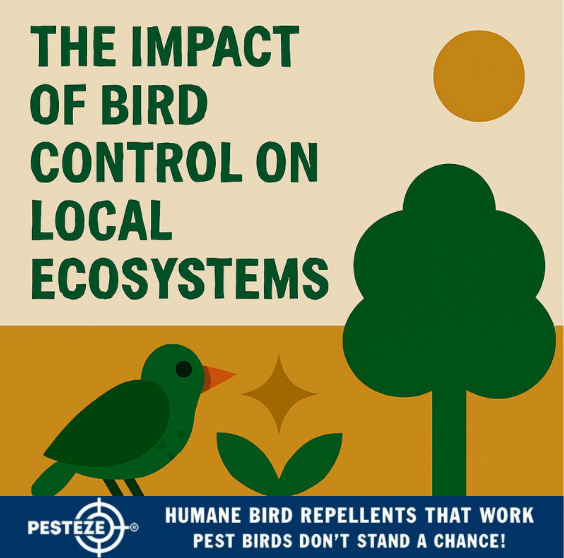THE IMPACT OF BIRD CONTROL ON LOCAL ECOSYSTEMS

THE IMPACT OF BIRD CONTROL ON LOCAL ECOSYSTEMS
SUMMARY
Bird control strategies create complex ecological consequences that demand sophisticated, scientifically informed approaches in 2025.
FEATURES
- Ecological Assessment: Comprehensive analysis of bird control's environmental impact.
- Biodiversity Preservation: Methods to maintain ecosystem balance during wildlife management.
- Scientific Understanding: In-depth examination of interspecies relationships.
- Adaptive Management: Strategies that prioritize environmental health.
- Long-Term Ecosystem Protection: Approaches that consider broader ecological implications.
GUIDE DESCRIPTION
Bird control strategies represent a complex intervention in delicate ecological systems, creating multifaceted consequences that extend far beyond immediate management objectives. The intricate relationships between bird populations and local ecosystems demand nuanced, scientifically informed approaches to wildlife management.
Birds play critical roles in ecosystem functionality, serving as pollinators, seed dispersers, pest controllers, and integral components of complex food web systems. Any intervention in bird populations creates ripple effects that can dramatically alter local environmental dynamics.
Technological innovations in 2025 provide sophisticated capabilities for understanding ecosystem interactions. Advanced ecological modeling, comprehensive tracking systems, and intelligent environmental analysis techniques offer unprecedented insights into the complex relationships between bird populations and broader ecological networks.
Professional ecological management requires comprehensive approaches that consider multiple interconnected environmental factors. Understanding local bird species' specific roles, their interactions with other wildlife, and their contributions to ecosystem balance becomes essential for developing responsible management strategies.
Scientific research reveals the profound complexity of bird populations in ecosystem maintenance. Different species perform critical functions that may not be immediately apparent, creating challenges for traditional wildlife management approaches.
Comprehensive ecosystem assessment demands consideration of multiple critical factors:
- Predator-prey relationships
- Seed dispersal mechanisms
- Insect population control
- Pollination processes
- Broader food web interactions
- Pukhraj Sharma


Comments 0